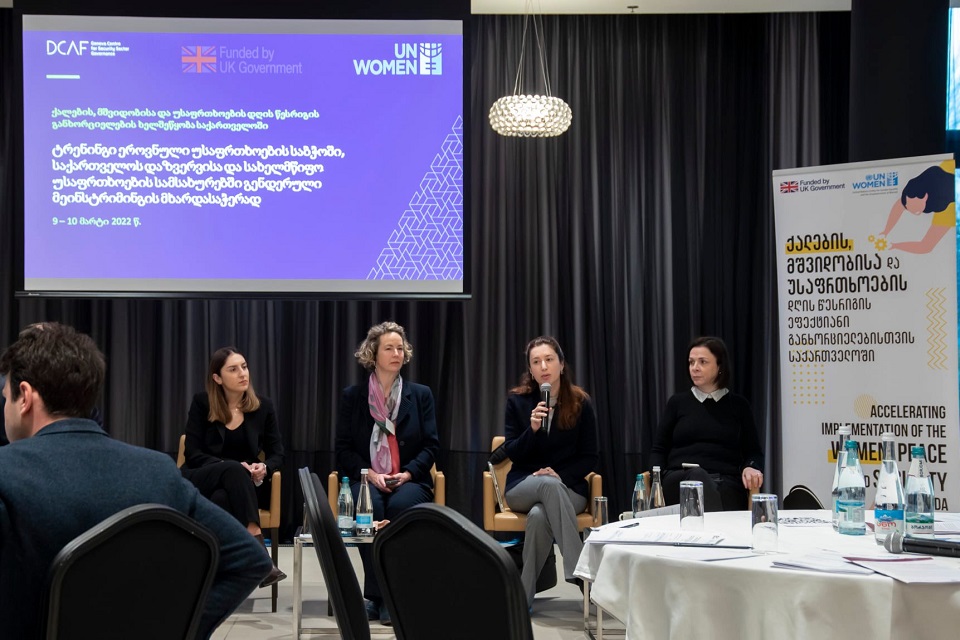More government agencies take interest in the Women, Peace and Security Agenda in Georgia
Date:

Global developments significantly increase the urgency and importance of the Women, Peace and Security (WPS) Agenda, and clearly demonstrate that its implementation, in practice, is an essential precondition for both conflict prevention and ensuring lasting peace.
In response to the existing challenges, UN Women in Georgia is expanding its present work to integrate a gender perspective into the security sector and strengthen its support for agencies that are currently taking their first steps towards the WPS Agenda.
For this purpose, a two-day training was organized for representatives of the Office of the National Security Council, the Georgian Intelligence Service, and the State Security Service of Georgia, during which 17 participants gained in-depth knowledge on WPS for the first time. The training was conducted in partnership with the Geneva Centre for Security Sector Governance (DCAF) and it focused on gender analysis instruments related to the security, collection and utilization of sex-disaggregated data, the barriers faced by women in advancing their careers, as well as the best practices for strengthening inclusivity and diversity in the sector.
“It was very interesting to discuss in detail international resolutions and conventions, as well as the country’s commitments to WPS,” remarked training participant Tinatin Samkharadze, a representative of the Office of the National Security Council. “My colleagues and I have now started to think about incorporating the best practices and experiences into the work of our office as well. We will continue to work in this direction after the training.”
UN Women, in cooperation with the DCAF, is implementing various initiatives to advance the WPS Agenda within the security sector in Georgia. Employees of the respective agencies taking their first steps towards gender mainstreaming are currently being trained, while those who have been working on WPS for years are now being supported by DCAF experts to further their progress and implement the best practices. Significantly, after the training, cooperation will continue with the staff of the Office of the National Security Council, the Georgian Intelligence Service and the State Security Service.
Collaboration with the DCAF is a part of the UN Women “Accelerating Implementation of the Women, Peace and Security Agenda in Georgia” project, supported by the Conflict, Stability and Security Fund of the Government of the United Kingdom.